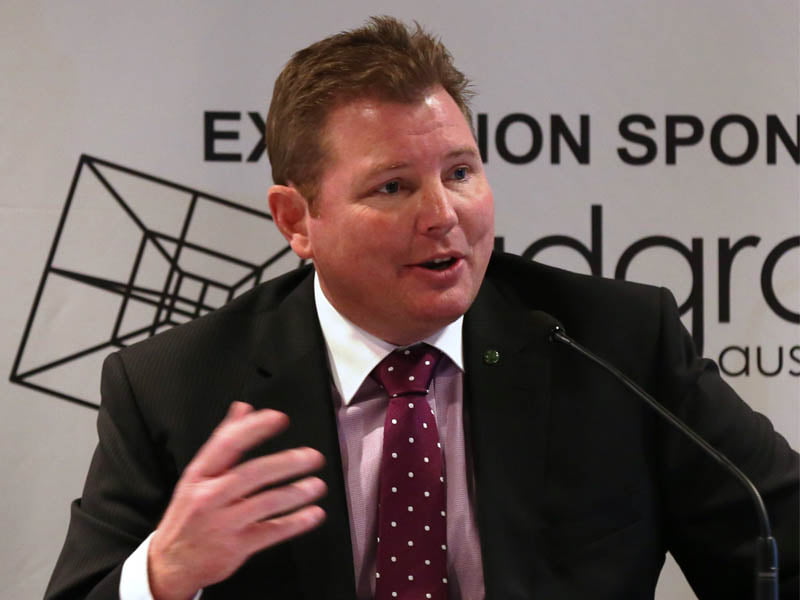Last night at Sydney’s harbourside Museum of Contemporary Art ten Australian startups were chosen as winners in the inaugural Bridge to MassChallenge Australia competition.
Three state governments – NSW, Victoria and South Australia – are partners, along with Microsoft Australia, Monash University and the federal Department of Industry, Innovation and Science.
MassChallenge was started in 2009 by the government of Massachusetts as a way of attracting startup jobs to the state. It has since expanded to the UK, France, Spain, Korea, Mexico, Morocco, and Colombia – and now Australia.

To date over a thousand MassChallenge alumni have raised nearly $2 billion in funding, generated nearly $1 billion in revenue, and created over 60,000 jobs.
Most of those jobs are in Massachusetts, which is after all the aim of the program. But the program also has a large foothold in London, where over 100 startups are involved.
Attending the event was Craig Laundy, Assistant Minister for Industry, Innovation and Science. “We have a lot to learn from the US culture of collaboration,” he told InnovationAus.com. “MassChallenge is a great example how governments can encourage the process.
“We are facing financial challenges as a nation and there remains a problem with Australia’s entrepreneurial culture,” Mr Laundy said..
“We are too quick to criticise failure, which is odd given that we like to back the underdog. But we are also quick to criticise success – we lose out at both ends.
“I hope this collaboration with MassChallenge is the start of something good – entrepreneurship is still an undervalued part of the economy.”
MassChallenge president Mike LaRhette told InnovationAus.com he was impressed with the startups he had seen in Australia, but said the standard of pitching could use improvement.
“In the US we are very good at self-promotion. It’s all part of the hustle.”
“With Australian startups, I have found a level of humility missing in the US. This is not a lack of confidence, but it does mean they need to tell their story better.”
To that end the MassChallenge mentoring process includes coaching in presentation and marketing techniques.
“Australia’s entrepreneurs have a lot to offer,” said Mr LaRhette. “Australia represents a unique opportunity for MassChallenge, given its strategic positioning in Asia-Pacific, its cultural and historical connections to MassChallenge hubs in the US and UK, and the energy and momentum of its entrepreneurial ecosystems.”
Mr LaRhette gave the Brexit vote, the US election and the rejection of the recent peace deal in Colombia as examples of how “the world is unhappy.” He said the tech community needs to learn how to respond.
“Brexit has caused turbulence in the startup ecosystem in the UK. Entrepreneurship is an engine that can change the world – even rebuild it.”
The ten MassChallenge finalists will attend a five-day boot camp in Boston in February 2017 where they will receive “additional special training, one-on-one mentorship, networking, and privileged access to the Boston ecosystem.”
They were selected from a pool of over 200 applicants across the three participating Australian states. Each of them was also invited to do a one-minute pitch on the evening, with MyGolgi winning the people’s prize for the best story.
The Australian selection process began in August, with 45 of the applicants attending three day boot camps in Sydney, Melbourne and Adelaide.
The ten successful MassChallenge startups were:
- CleverDux: identification of asthma, allergy or anaphylactic medical conditions in school students.
- Conweigh: mobile shipping container weighing service.
- Digital Homebrew: Pourtal – a virtual bartender that alleviates problems with serving beer from kegs.
- Edufolios: ePortfolio for Australian teachers.
- Freddi: business process automation for SMEs.
- Kick.it: a stop smoking app.
- Microba: personal identification and management of the body’s micro-organisms.
- MyGolgi: wearable technology to identify the source of back pain.
- PsyberSafe: preventing predator grooming of children online.
- StopRotor: new drone technology, using concepts from helicopters to improve performance.
Missing from the evening’s proceedings was John Barilaro, NSW Minister for Regional Development, Skills and Small Business, who was elected head of the state National Party and Deputy Premier yesterday in the wake of the party’s disastrous showing in the Orange by-election.
His place was taken by the CEO of Jobs NSW, Karen Borg.
Do you know more? Contact James Riley via Email.
